A STUDY OF THE EFFECTS OF CORRUPTION ON ECONOMIC AND POLITICAL DEVELOPMENT OF ARMENIA doc
Bạn đang xem bản rút gọn của tài liệu. Xem và tải ngay bản đầy đủ của tài liệu tại đây (157.98 KB, 61 trang )
AMERICAN UNIVERSITY OF ARMENIA
A STUDY OF THE EFFECTS OF CORRUPTION ON ECONOMIC AND
POLITICAL DEVELOPMENT OF ARMENIA
A MASTER’S ESSAY SUBMITED TO THE FACULTY OF THE
GRADUATE SCHOOL OF POLITICAL SCIENCE
AND INTERNATIONAL AFFAIRS FOR PARTIAL FULFILLMENT OF THE
DEGREE OF MASTER OF ARTS
BY
FRUNZIK VOSKANYAN
YEREVAN, ARMENIA
NOVEMBER 2000
2
ACKNOWLEDGEMENTS
To write about corruption in a society where it is a widespread phenomenon, it becomes
difficult to collect appropriate data. So I would like to thank to all those people who help me in
this difficult work.
Special thanks to my faculty advisor Dr. Nicol Shahgaldyan, who advised me to choose
this interesting topic for my Master Essay and help me with his valuable advice.
Special thanks to all my faculty staff especially to Dr. Lucig Danielyan whose given
knowledge direct me to find out the solution of the problems of corruption in Armenia.
Special thanks to Civil Society Development Union and to The Armenian Center for
National and International Studies for providing very valuable information about the corruption
in Armenia.
I would like to thank all the interviewed persons who shared with me their experience
and gave me advice, which help to realize the situation in Armenia. Thanks to all my friends and
colleagues who provided me sources and materials for my Master Essay.
3
TABLE OF CONTENTS
PAGE
1. Abstarct …………………………………………………………………………… 6
2. Methodology…….……………………………… … 7
3. Introduction…………………………………………………… 8
4. What is the corruption ……………………… 10
5. What are the causes of corruption … 16
6. What are the effects of corruption on economic
and political development ………………………………………………………… 27
7. How can corruption be reduced ……………………………………………………… 38
8. Conclusion ……………………………………………………………………………. 44
9. References …………………………………………………………………………… 55
4
LIST OF TABLES AND FIGURES
PAGE
1.Chart I , Chart II: Corruption as big bribery,
Corruption as any bribery ……………………………………… 46
2. Chart III: What sector boast most causes of corruption ………………………… 47
3. Chart IV: The size of corruption …………………………………………………. 48
4. Chart V: Causes of corruption …………………………………………………… 49
5. Chart VI: Red tape ………………………………………………………………… 50
7. Chart VII: Red tape ( Investor's Perception) ……………………………………… 51
8. Chart VIII: Corruption hurts investment ………………………………………… 52
9. Table 1: Attitudes towards Red tape ……………………………………………… 53
10. Table 2: The NA' Committee Dates about
use of foreign government's and International oraginazions' loans ……………… 54
5
LIST OF ABBREVATIONS
CSDU - Civil Society Development Union
CEE - Central European Counties
FDI- Foreign Direct Investment
FSU - Former Soviet Union
GDP- Gross Domestic Product
IMF- International Monetary Fund
NGO - Non Governmental Organization
NA - National Assembly
OECD- Organization for Economic Cooperation and Development
OED - Oxford English Dictionary
USA- United States of America
6
ABSTRACT
The essay demonstrates that high scale corruption may have very harmful effects on
economic and political development. Corruption as one of the oldest phenomenon in human
society exist in every country contemporary world. Corruption can be defined in many ways
such as general disease of body politics, public exploitation and abuse of public office for private
gain. The causes of corruption also are many in number. For example, cultural factor,
psychological factor and system related factors may cause corruption in every society. There are
some factors such as monopoly power, discretionary power and weak accountability of public
officials may give opportunities for corrupt acts. Corruption may decrease the efficiency of
public spending, decrease the budget revenues, raise the budget deficit, hinder Foreign Direct
Investment, reduce the effectiveness the use of aid, dissipate political legitimacy and hinders the
democratic development. The anticorruption campaign should mainly concentrate on the reforms
of civil service, judiciary system, tax and custom departments. In Armenia the successful
implementation of anticorruption campaign is preconditioned by the free and fair elections,
politically educated people and by honest leader.
7
METHODOLOGY
The research methods used for the completion of the essay were the content analysis and
historical/comparative analysis. These methods will include thorough investigation of the
international experience in this field through the suggested materials and through the materials
from the Internet. The situation in Armenia will be studied through personal interviews with
former and present public officials (including those in fiscal sector and local government) and
private entrepreneurs and also analyzing articles from the different newspapers.
8
INTRODUCTION
The purpose of this essay is to reveal what are the causes of corruption and the factors that
create the opportunities for corruption, what are effects of corruption on economic and political
development in Armenia and in different nations. And according to this findings and the
experience of other countries that have succeeded in their fight against corruption suggest the
policies for reducing corruption in Armenia.
The first chapter of the essay mainly deals with the terms, definitions, concepts and types of
corruption. Corruption as one of the oldest and most perplexing phenomenon in human society
exists in every country. The classical conception of corruption, as a general disease of the body
politics, was stated by ancient philosophers Plato and Aristotle. They saw corruption as
dysfunctional, which is destructive of a particular political order, be it monarchy, aristocracy or
democracy. Carl Fredrich defines corruption as a deviant behavior associated with a particular
motivation, namely that of private gain at public expense. Van kKlavaren see corruption as the
exploitation of the public. There have been a number of different attempts at defining corruption.
However no precise definition can be found which applies to all forms, types and degrees of
corruption, or which would be acceptable universally. More frequently used definition of
corruption is the abuse of public office for private gain. Public office can be abused in many
ways, for example, when officials accept or extort bribe; or public office can be abused for
personal benefits even if no bribery occurs through the theft of state assets or diversion of state
revenues.
The second chapter investigates the variety of causes of corruption and opportunities that
governmental structures create for corruption in Armenia and in different nations. Leslie Holmes
9
(1993 p.157) the causes of corruption divides into three categories, cultural, psychological, and
system-related. And Klitgaard, R. (1998) brings three dimensions of institutional structure that
he considers most critical in bearing on the opportunities for corruption.
"1.The monopoly power of officials.
2.The degree of discretion that officials are permitted to exercise.
3.The degree to which there are systems of accountability and transparency in an
institution."
The third chapter examines the effects of corruption on economic and political development.
According some scholars some levels of corruption may encourage the economic growth. But in
case of high level of corruption most scholars agree that corruption has very harmful effects on
economic and political development. High scale corruption reduces the efficiency of public
spending, raise the budget deficit, reduce budget revenues, dissipate political legitimacy and
hinder the democratic development.
The last chapter examines the ways and policies for reducing corruption, such as reform of
civil service, judiciary system, tax and custom departments etc. and according to those policies
and the experiences of other countries suggest the policies for reducing corruption in Armenia.
But for proper implementation of those policies in Armenia is preconditioned by the free and fair
elections, politically educated people, and honest leader.
10
WHAT IS THE CORRUPTION
As one of the oldest and most perplexing phenomenon in human society, political corruption
exist in every country in the contemporary world and it is not exclusively a problem of
developing countries. The classical concept of corruption as a general disease of the body
politics was stated by ancient political philosophers Plato and Aristotle. Plato in his theory of the
"perverted" constitutions-Democracy, oligarchy, and tyranny-worried that these regimes instead
of being guided by the law were serving the interest of the rulers. "These fundamental general
notions of corruption all practically define corruption as dysfunctional. For it is seen as
destructive of a particular political order, be it monarchy, aristocracy, or polity, the latter a
constitutionally limited popular rule, and thus by definition devoid of any function within a
political order." This classic conception of corruption continued into modern times, and is central
to the political thought of Machiavelli, Montesquieu and Rosseau. For Machiavelli corruption
was process by which the virtue of the citizen was undermined and eventually destroyed. "Since
most men are weak and lacking in the virtue of the good citizen except when inspired by a great
leader, the process of corruption is ever threatening. And when virtue has been corrupted, a
heroic leader must appear who in rebuilding the political order infuses this virtue into the entire
citizenry." Arnold Heidenheimer (1993 p. 25) Montesquieu saw corruption as the dysfunctional
process by which a good political order is perverted into evil one and a monarchy into a
despotism. According to Rosseau political corruption is a necessary consequences of the struggle
for power. Then he argued "that man had been corrupted by social and political life. It is not the
corruption of man which destroyed the political system but the political system which corrupts
11
and destroys man." Arnold Heidenheimer (1993 p. 25) There is an agreement between the views
of Rosseau and Lord Acton that "all powers tends to corrupt and absolute powers corrupts
absolutely." Lord Acton is focused on the moral depravity which power is believed to cause in
man, "they no longer think about what is right action or manner, but only about which is
expedient action or manner." Arnold Heidenheimer (1993 p. 16) According to Carl Fredrich
(1972 p.18) "Corruption is a kind of behavior which deviates from the norm actually prevalent or
behaved to prevail in a given context, such as the political. It is deviant behavior associated with
a particular motivation, namely that of private gain at public expense." So he stated the concept
of corruption in a way that constitutes a break of law or of standards of high moral conduct.
Jacob Van Klavaren (1954, p.25) defines corruption as the exploitation of the public. And he
brought very interesting explanation taking a public official as an economic subject who, as
every economic subject, tries to miximise his gain or income. Supposing that the income derived
from the free-market agreement with the functional-economic income. In a system of free
competition, there can be market equilibrium if both sides of the market, sellers and buyers, are
equally strong and two exchange curves intersects. However, if there is a monopolistic condition
on one side of the market, the monopolist will try to get the maximum profit from the other side.
So the income of public official, who as an economic agent regards his office as a business,
"does not depend on his usefulness for the common good but upon the market situation and his
talent for finding the point of maximal gain on the public's demand curve." Thus the "corruption
is always an exploitation of the public, which can occur only because the civil servants occupy a
constitutionally independent position vis-a-vis the public."
There have been a number of different attempts at defining corruption. However no precise
definition can be found which applies to all forms, types and degrees of corruption, or which
12
would be acceptable universally. According to Oxford English Dictionary (OED) the term
corruption in political context is defined as “ Perversion or favor, the use or existence of corrupt
practices, especially in a state, public corruption, etc.”
One of the most popular definition of corruption was given by Leslie Palmier (1983, p.207).
According to this definition corruption is seen as the use of public office for private advantage.
According to Friedrich (1966, pp.174-5) the use of public office for private advantage is not
always widely perceived in a given society to be corrupt. "Particularly if an individual making
personal gain is simultaneously making a positive contribution to the society-there is no
necessary contradiction between private advantage and contributing to the general good-many
citizens will see such actions as at least acceptable and sometimes even just reward."
Considering the conflict that can arise between an abstract definition of corruption and its
application to a complex real world some writers have distinguished between what can crudely
be called good, bad and ambiguous corruption. For example, Katsenelinbogen (1983, p236)
identifies two basic types of corruption.
"1.Actions whose harmful effects on society are questionable. According to
Katsenelinbogen, this form of corruption involves redesigning the system and
legalizing the appropriate actions of people in it.
2.Actions that unambiguously harm society. Such acts should be treated as corrupt and
criminal."
Then Arnold Heindehmer (1970 pp.3-28) goes further and identifies three basic categories of
corruption 'black', 'white' and 'gray'. Depending on the level of commonality of perception of a
given act by public officials and citizens. 'White' acts are more or less accepted by both groups,
13
whereas 'Grey' acts are those about which both officials and citizens disagree. 'Black' acts are
perceived as wrong by both officials and citizens.
It is evident from the above discussion that there is a wide range of definitions of corruption.
For our further discussion about the forms of corruption we take the definition given by Leslie
Palmier (1983, p.207) use of public office for private gain. This definition is both simple and
sufficiently broad to cover most of the corruption that we face, and it is also widely used in
literature. Public office offers many opportunities for private gain. Bribes are one of the main
tools of corruption. The Oxford English Dictionary defines a bribe as “ a reward given to pervert
the judgment or corrupt the conduct.” A bribe consists of an offer of money by an outside party
to secure desired action from the governmental officials. Bribes can influence the choice of
private parties to supply public goods and services and the exact terms of those supply contracts.
According to Robert Thobabeen (1991, p.62) buying contracts can be called also Kickbacks
"when government officials may use their bargaining power with contractors and their discretion
in awarding contracts to obtain a fee or service charge for arraigning the contract. A percentage,
usually 5 percent, of the contracts is returned or kicked back to the public officials by the
contractor." According to World Bank report (1997 p.20)
"Bribes can influence the allocation of monetary benefits (for evasion, subsidies, pensions,
or unemployment insurance.) Bribes can be used to reduce amount of taxes or other fees
collected by government from private parties. In many countries tax bill is negotiable. Bribes
may be demanded or offered for the issuance of license that conveys an exclusive right, such
as a land development concession or exploitation of a natural rescores. Sometimes politicians
and bureaucrats deliberately put in place policies that crate control rights, which they profit
from by selling. Bribes can speed up the government’s granting of permission to carry out
legal activities. Bribes can alter outcomes of the legal and regulatory process, by inducing the
government either to fail to stop illegal activities or to unduly favor party over another in
court or other legal proceeding."
14
The converse of bribery is extortion, the abuse or threat of power in such a ways to secure
response in payment of money or other valuable things. Extortion according to the Oxford
English Dictionary "is the act or practice of extorting (defined as either to wrest or wring from a
person, extract by torture or to obtain from a reluctant person by violence, torture, intimidation,
or abuse of legal or official authority, or – in a weaker sense by importing, overwhelming
arguments or any powerful influence) or wresting especially money, from a person by force on
by undue exercise of authority or power."
Another type of corruption is the misuse of public property and funds. Control of property
provides opportunities for mismanagement and corruption. An extreme form is the large-scale
“spontaneous” privatization of state assets by enterprise managers and other officials in some
transition economies. According to Leslie Holmes (1999, p.5) the process of privatization which
is ultimately implemented by the state provides new opportunities to state officials. They can
demand or request bribes and kickbacks from private agents interested in purchasing a formerly
state-owned business. At the other end of the scale is petty theft of items such as office
equipment and stationary, vehicles and fuel. The perpetrators of petty theft are usually middle
and lower-level officials, compensating, in some cases, for inadequate salaries.
Theft of government financial resources is another form of corruption, officials may pocket
tax revenues or fees (often with the collusion of the payer, in effect combining theft with bribery)
steal cash from treasures, extend advances to themselves that are never repaid, or draw pay for
fictitious “ghost” workers, a pattern well documented in the reports of audit authorities. For
example former Philippines president Ferdinant Morcos was accused of stealing millions of
dollars, much of it in American foreign aid. In another example in Iran-Contra affair in which
15
profits from the sale of US government property (antitank and antiaircraft missiles) were
diverted to private arms dealers and to counterrevolutionaries in Latin America.
Robert Thobabeen (1991, p.63) brings another form of corruption Influence Peddling when
individuals with access to people in high places are sometimes tempted to trade on the influence
of high ranking government officials. "There is money to be made through sale of access, the
arrangement of contracts and timely intervention to secure favorable disposition of regulatory
decisions and government contract. The use of these kinds of connections for personal gain is
usually described as influence peddling."
Patronage is another form of corruption. The assignment of government positions to political
supporters has long been a practice in politics. While civil service regulations at the national and
state level may effectively curtail the number of patronage jobs, political appointments remain at
the top levels of government and provide a legitimate way for elected politicians to influence
bureaucracy through the appointment of legal executive officials. The process becomes corrupt
when appointees are expected to pay for their jobs. The custom of rewarding wealthy campaign
contributors with appointments as ambassadors has been traditional in presidential politics.
Leslie Holmes (1993, p.205) brings three major forms of patronage. These are the following.
Nepotism In this context "is the granting of public office on the bases of family ties."This is a
good example of a point where different cultures have very different attitudes towards some
forms of corruption.
Shared experience "there the patron and client have usually worked together in the past and
are on good terms and the patron promotes or has promoted the client on the basis of these past
experience and warm relationship."
16
Shared Interest In this case,"the patron does not have common experience with someone he
she wishes to promote, but rather a common interest" (for example, they both come from the
same republic and/or are of same ethnic group; they both favor a large increase in defense
expenditure in contrast to what others want, they are of the same gender.)
Corruption in a society can be rare or widespread. If it is rare, consisting of a few individual
acts, it is straightforward to detect and punish. In such cases noncorrupt behavior is the norm,
and institutions in both the public and private sector support integrity in public life such
institutions, both formal and informal, are sufficiently strong to return to a noncorrupt,
equilibrium In contrast, corruption is systemic where bribery, or a large or small scale, is routine
in leading between the public sector and firms or individuals. Where systemic corruption exists,
formal and informal rules are at odds with one another bribery may be illegal but is understood
by everyone to be routine in transactions with the government. There are many countries in
which bribery characterizes the rules of the game in private public interactions.
So it should be now clear that there are a number of ways of defining corruption. The term
corruption can not be defined satisfactorily, similarly it is not possible to provide a classification
that is suitable for all. In this chapter I tried to focus the types, concepts, and definitions of
corruption existing in the world.
CAUSES OF CORRUPTION
If we take the human nature as a base we may explore why all political systems have
experienced corruption. But it does not explain why some officials engage in corruption while
others do not. These differences we can understand by making apparent the causes and
opportunities for corruption. As we have seen in the first chapter there are many different
17
definitions of corruption and, consequently, the causes and opportunities for corruption are also
expected to be many in number. So In this chapter I will focus on the factors which may be
causes of corruption and which may create appropriate conditions or opportunities for corruption
as in the world as well as in Armenia.
Leslie Holmes (1993 p.157) the causes of corruption divides into three categories, cultural,
psychological, and system-related.
Cultural factor: “In many countries certain types of corruption are more or less acceptable
often depending on the scale in the traditional political culture.” Some countries have more of a
reputation for corruption particularly because of traditional attitudes towards family, kinship, etc.
For example Leiken Robert (1997) writes of the Africa that
"In postcolonial Africa, neopatrimonial regimes become the rule, and the state emerged as
an extension of the ruler's household, patronage, ethnic and kinship ties, and bribes became
major modes of governance. Corruption funded patronage to Kinsman and crimes have
exacerbated regional, tribal, religious, and ethnic divisions. The International Forum for
Democratic Studies estimates that in oil-rich Nigeria some $12.2 billion in government
revenue was divested to "Extra-Budgetary accounts" between 1988 and 1994, and there are no
record of how these funds were used. Nigerians themselves wait in mile-long lines for gas,
and Nigeria now import nearly 70 per cent of its petroleum. Unfinished pipelines, financed by
loans from multilateral development banks that have been pocketed by government officials,
tell a large part of the story. Oil earnings do less to feed Nigerians then to enrich their corrupt
rulers who instantly transfer their pickings to foreign banks."
The other cultural factor is a weak tradition of the rule of law and low level of respect for the
law. According to Holmes (1993 p. 159) "several of the Asian states were formerly colonies and
"the law" has been seen by some citizens as theirs' and therefore not respected in the same way
that it might be in a long-established independent country, such as many western states."
Conversely according to West German specialists in 1986 in GDR corruption was in very low
levels, which can be explained by the German tradition of respect for law and order. In Armenia
also there is evidence that people do not trust in or do not respect the law. During the interviews
18
many tax collectors ensure that, although they are inclined to take bribes, in most cases taxpayers
themselves offer bribes. People in Armenia mainly are inclined to solve their problems with the
help of bribes and not with the help of law. Bribing tax collectors, traffic police, judges publicly
perceived as a way of life. Holmes (1993) explains this political culture by the experience under
communism. According to Lampert (1984 pp.371-2) "In the Soviet republics especially in the
Transcaucasian republics a number of influences such as strong family ties, have led to a
systematic disregard of the law." During the Soviet times in Armenia, especially from the 1980s,
the bribery was widespread phenomenon and during some period of time it becomes a norm that
bribes can solve the problems more efficiently than law. So citizens over time come to see some
types of corruption as normal and beneficial. This also affirms the survey results made by the
Civil Society Development Union (CSDU).
1
Where, if the definition of corruption includes
serious cases of corruption, for example, "taking money for “closing a case” in the Prosecutor's
office" (See Chart I) 89 percent of the respondents answer positively to those questions. But
when to the definition is added the “nurse taking money from the patient” the positive answers
reduces becoming 52 percent. (See Chart II) So this can be explained that in Armenia people
are more tolerant towards some types of corruption and it is accepted by people as a normal
phenomenon.
According to Banfield (1958) historical tradition might also affect the perceived costs of
corrupt action through the influence of religion. This might work in at least two ways. Religious
traditions have often been thought to condition cultural attitudes towards social hierarchy. Where
more “hierarchical religious” – Catholic, Eastern Orthodoxy, Islam – dominate, challenges to
office holders might be rarer than in cultures shaped by more egalitarian or individualistic
1
the survey was conducted in Yerevan in December 1999, by Civil Society Development Union. The survey was
aimed to reflect the perception of corruption in the Armenian Society.
19
religious, such as Protestantism. Religious may also influence how individuals view their
loyalties to family as opposed to other citizens- what Edward Banfild has called “familism” –
which, in turn, may affect the level of nepotism. Tanzi Vito (1994) suggests that, in many
developing countries where family ties routine a greater importance than they do in Europe or
North America, officials in public office will be less able to escape demands that they extend
special favors to family and friends.
The other factor of causing corruption is psychological factor. There are number of
psychological factors that help to explain some types of corruption. Taking into account the
internal factors of individuals some individuals are "naturally evil" and will commit criminal
acts, including corrupt ones in any type of system. The external factors, individual's relationship
to the group is also important. According to Holmes (1993, p. 165) “the power of both peer-
pressure and peer-comparison can be great, for instance in the words of one artist “when the best
of people take bribes, isn't it the fool who doesn't?” In other words if individuals see others
around them benefiting from corruption, they may well choose to indulge too.” The
psychological factor may have some role of causing corruption in Armenia. People who work in
a position that can take bribes and don't use their chance they will be considered by their
coworkers as stupid men. So under the pressure of this factor many public officials during some
period of time become corrupted. But in many cases because people choose their new job
depending on the scale of opportunity for taking bribes and they know they should take bribe
because this is the way of life. According to Holmes (1993, p.170)
“The other psychological factor that is fear also can encourage people to act corruptly.
For example in a hierarchical situation a subordinate may fear the consequences of not
acting in a similar way to his/her corrupt superior. Another type of fear, which was more
widespread during soviet times, is the fear of underfulfilment of the plan that may
encourage public officials to act corruptly. This fear may lead individuals to engage in
20
corrupt practices, either in order actually to fulfil the plan or else to appear to have done so
(the false reporting syndrome).”
This factor may have some role of causing corruption in Armenia. There is some fixed plan
for tax collector and for custom workers in Armenia. And there are many cases when tax
collectors in order to fulfill the required plan extort some extra bribes from the entrepreneurs. For
example, as a businessman told during interviews when tax collector saw that there is nothing
wrong with accounting and documents, however, he requires bribe, otherwise, he has wide range
of discretionary power to use the law against taxpayers, even under the threat to stop the
production or close the shop. And there is also an example where the Minister of State Budget
Revenue Gagik Pogosyan secretly ordered to all tax inspectors that “even If during the visiting
and monitoring there are no mistakes and violations of law you must collect one billion drams,
the budget needs money very much” (04.10.2000, Aravot Note: Aravot is Armenian Daily Newspaper)
Human weakness also may cause corruption. Some people find it difficult to reject offers
from a person of a "generous" nature. Some officials will accept gifts because they know they
have been particularly helpful to someone and either feels they "deserve" a reward (that is they
feel that a reward is not inappropriate), or else genuinely do not want to offend or embarrass a
grateful supplicant.
According to Holmes (1993) “nepotism also as a form of corruption can be explained in
psychological term. "The blood is thicker than water" syndrome wanting to help one's family.
Nepotism can be explained in terms of individuals seeking to maximize their own power and the
lust for power is a psychological variable.”
System related factors: One of the factors that distinguishes post-communist states from
transitional societies elsewhere is that they have been undergoing multiple and simultaneous
transitions since the collapse of communist power in 1989-1991. In addition they had to
21
introduce fundamental economic, legal, ideological and social change. Many also had to redefine
their boundaries and identities, and realign themselves in international military and trading block.
The sheer scope of attempted change is one significant reason why most post-communist states
have suffered a severe legislative lag in the past decade. This lag has meant that laws have often
been either in essence non-existence or else vague and contradictory. This situation is ripe for
both corruption and organized crime. For Armenia factors such as Karabakh war of 1992-94,
sharpened the decline in economic activity and income of the population, which creates
favorable conditions for corruption.
Holmes (1993) brings another factor that the birth of post-communist states coincides with the
increasing dominance of neoliberal ideology in the West. It advocates minimizing role of the
state in the economy and encouraging civil society that had in many West European countries
been accepted by the state in recent decades. One way in which this occurs is trough the
privatization of services and industries that had once been run by the state. There is a move away
from state-run monopolies towards competition, marketing, and contractual relationships, the
notion of "user-pays', and the maximization of cost-effectiveness. According to Leiken (1997)
In recent years, academics and commentators in the mass media have argued that in
transition economies (particularly in the countries of the former Soviet Union) market
liberalization and privatization have significantly increased corruption. They maintain that
these reforms respond to the vested interests of corrupt elites even highly respected
academics are ambivalent on this particular issue, advising extreme caution in initiating
economic reforms when legal institutions are not yet developed.
So the very process of privatization - which is ultimately implemented by the state -provides
new opportunities to state officials. They can demand or request bribes and kickbacks from
private interested in purchasing a hitherto state-owned business, in a way they cannot when there
is no privatization process. The privatization in Armenia is one of the main factors that give
22
wider scope for corruption. There were many violations of law during the process of
privatization and it was a source of wealth for many high ranking public officials. The main part
of privatization was implemented secretly and illegally and there is no available official
information about it. Many fabrics were privatized in very law prices, which further had been
dismantled and sold outside of Armenia. For example, about the privatization of “Narine”
holiday house had not been informed even the director of the holiday house and it was privatized
five times bellow of its real price estimated by the government. (Aravot 13. 06. 1998) According
to the National Assembly’s (NA) Oversight Chamber's audit results of the privatization of 600
fabrics during the 1996-97 there were many violations of law. Chairman of Oversight Chamber
of NA Ashot Tavdyan bring examples of Yerevan Wine, Conserve, and Caramel fabrics which
were privatized in very law price, for example there were bought only 41 percent of stocks of
Yerevan Wine fabric and about the last 59 percent, which should be returned to State, there is no
information. And there is no information about the reserves of brandy's spirit and wine's
collections. (25.06. 2000, Azg Not: Azg is a Armenian Daily Newspaper.)
As I have mentioned at the beginning of this chapter besides the causes of corruption there
can be also opportunities for corruption because of the institutional structure. These opportunities
are more important for accelerating widespread and high level corruption. So it is instructive to
draw a distinction between those elements, which may be seen to provide opportunities for
corrupt acts and those, which causes corruption. For example Klitgaard, R. (1998) brings three
dimensions of institutional structure that he considers most critical in bearing on the
opportunities for corruption.
"1.The monopoly power of officials.
2.The degree of discretion that officials are permitted to exercise.
23
3.The degree to which there are systems of accountability and transparency in an
institution."
When officials have monopoly power over provision of a government good it is crucial for
explaining the incidence of corruption without theft. Monopoly power could exist for the legal
reason that a certain officials are the only charged with performing a certain task. Whether an
officials will be in a favorable position to extract bribes from clients depends not only on
whether they have a monopoly over their particular activity, but also upon the rules and
regulations regarding the distribution of government goods.
The greater the amount of discretion which is given to an agent, the more opportunities there
will be for agents to give "favorable" interpretations of government rules and regulations to
businesses in exchange for illegal payments. For example in terms of the level of discretion,
when a custom agent is allowed to apply one of several tariff rates to a product, or when a tax
inspector is given substantial room to decide whether companies are given deductions or not,
there will be an incentive to demand a bribe in exchange for offering favorable treatment.
Asymmetries of information present principles with a challenge in that they often find it
difficult to monitor the actions of agents effectively and hold them accountable for their actions
when they fell to carry out an assigned task. Political structure is crucial element in the evolution
of corruption. Political structures where representative processes to enforce governmental
accountability are weak or absent would be expected to provide the greatest opportunities for
corruption. The judicial system also has an important role in giving opportunities for corrupt
acts. But it is very important the degree of separation of power between judiciary and
government because it may have very significant influence on judiciary system in playing its key
role. The separation of three governmental branches in Armenia is in very low level and they are
24
not independent of each other. The executive power has obvious dominance over the judiciary
branch. According to Samvel Khachaturyan (1997) the president of Armenia is the central person
for the judiciary system. According to article 55 of the Constitution of Republic of Armenia the
President of RA not only can appoint and dismiss the Chief Prosecutor but also can appoint and
dismiss all judges and presidents of all courts. Ministry of Justice as a part of the executive
branch has the right to control and supervise all courts. So in reality the judicial power is under
the dominance of the executive branch. Political leaders who maintain very tight control over the
judiciary and law-enforcement sector will typically have the capacity to undertake corrupt acts
with privilege. According to the SCDU’s survey results the Judicial system is the most corrupted
sector. To the question “In your opinion, which sectors boast most cases of corruption” 64
percent of the answers was the judicial sector. (See Chart III) And also nearly 85 percent of the
respondents agree that there is large size corruption in judicial system. (See Chart IV) So the
weak and controlled judicial power creates many opportunities for political leaders as well as for
public officials to act corruptly.
The civil society's role and power also can give the opportunity for corruption particularly the
role of media. In Armenia the prospects of free press is limited. Sometimes press was subjected
to pressure and persecution. According to Human Development Report (1999) “most papers
printed in 2000-3000 copies and circulate mainly in the capital. And also the population's low
purchasing power and underdeveloped advertising system contribute to the poor financial
performance of the press, which in turn hinders the development of free press in Armenia.”
State-owned companies have a monopoly on newspaper printing and distribution facilities, and
most newspapers are permanently in debt to the printers. The State retains, through its ownership
of the printing and distributing network, the potential to shut or otherwise pressure newspapers
25
that take too harsh an opposition position. The two most widely visible television channels
belong to state television, and tend to present a positive view of officials and their activities.
According to the research made by the CSDU the financial dependence of Media from the
political parties, Mafiosi structures and different individual politicians makes media to serve for
the narrow political circles as a weapon for achieving their purposes. There are also registered
nearly two thousand Non Governmental Organizations (NGO) but the many of those are not
active and have no connection with governmental institutions. So the dependence of mass media
and the weak nondeveloped civil society creates an opportunity for politicians and public
officials to act corruptly.
Klitgaard (1998) brings another factor, which is very important for contributing corruption –
low wages.
"For civil servants, the reward structure within the state administration has traditionally
been seen as one of the key determinants in the evolution of corruption. If officials are paid
wages comparable to those available to performance, the potential gains from engaging in
corruption may not be large enough in relative terms to make it worth the risk. If instead,
officials in the public sector are paid wages well below those for similar duties in the private
sector, then opportunities for corruption may become the principal reason for choosing a
public sector post."
In Armenia this factor is very actual. Unemployment is at very high level, many people have no
regular source of income and for most of those who have a regular income typically is too low to
support a family. At the same time, prices have been liberalized since the independence. Thereby
significantly raising the cost of living for most Armenians. So given the relative to the wage rate,
it is inevitable that many employes will look for any means to supplement their meager ventures,
such as bribes. According to CSDU's survey the most important reason for corruption in
Armenia is the low wages. (See Chart V)
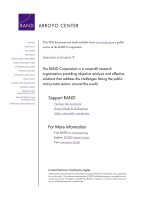
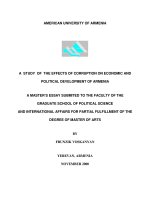
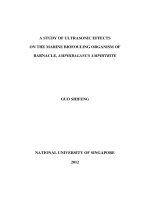
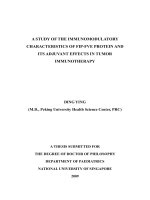
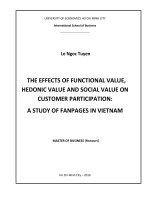
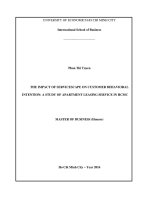

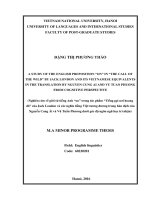

![KxNiy[Fe(CN)6].xH2O prussian blue analogue: A study of size effect on the structural, optical and magnetic propertiecs](https://media.store123doc.com/images/document/2020_08/17/medium_mnl1597672029.jpg)